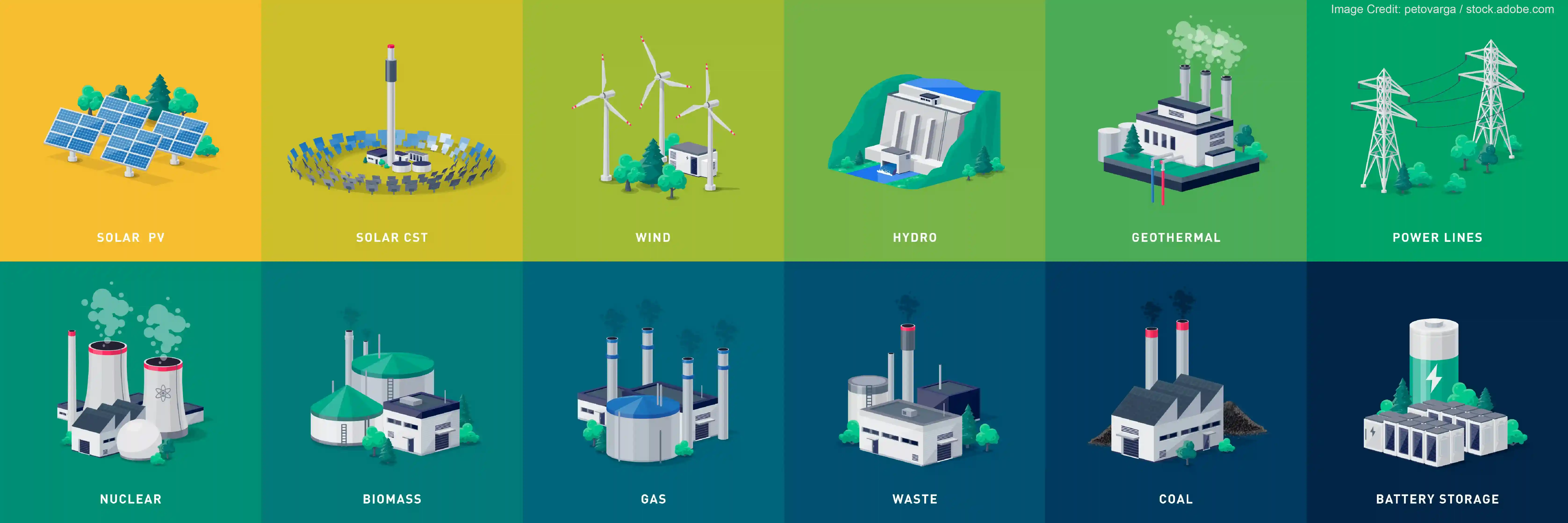Electrification
Sustainable Energy: a holistic view
What is Sustainable Energy?
Published Nov 2022 | Revised Nov 2023
Sustainable energy in its simplest form refers to energy derived from sources that do not damage the things we value as a society—our natural environment, human rights, dignity, security, etc.
Whilst there are more technical definitions in use, this one provides a holistic view that incorporates the ever-changing nature of human culture. As we develop, we change, and our views and values evolve.

Fossils fuels became non-sustainable
Although finite, coal, oil and gas were sustainable energy sources because we had mastered their production, and they met our growing energy needs. We knew we would run-out of them, but we believed we would find more or find ways to get more out of it. And we did.
We found a use for gas which was once considered waste, and we also found ways of squeezing oil out of shale. These fossil fuels became unsustainable energy sources when we realised the damage that their production/use does to our environment.
The jury is out on nuclear fission
Nuclear fission was also considered sustainable until Chernobyl, and then Fukushima. These disasters have heightened the publics anxiety about the long-term safety and therefore sustainability of current nuclear fission technologies.
And then there is the question of nuclear waste. And the security issues around enriched uranium which is as essential to energy production as it is to producing nuclear bombs. So, low carbon emissions aside, nuclear fission appears to still be a long way from being considered sustainable.
Most renewables are not sustainable, yet
Renewables such as solar and wind represent the most advanced options for our energy future, but their limitations remain significant as they rely on climatic factors outside our control.
Current battery storage technologies are still unable to support our energy grid in any meaningful way. Most planned battery production for the near future will end up in vehicles, which contribute only a fraction of our current emissions.
Nuclear fission and hydrogen have each been touted as the holy grail, but we are years away from any grid-scale energy production from these sources.
The transition will be messy
In keeping with our nature as humans, we have found that our current energy production and use processes are damaging to our natural environment and threatening our own posterity.
And it is in keeping with that same nature that we have fallen into disagreements about the nature of the problem what the solutions should be based on.
Fortunately for us, the solution lies in the same human nature that causes us to disagree. Disagreement drives competition and innovation. It is time to admit that we have a problem and admit that we'll disagree about aspects of the problem and the solution, but recognise that human development over the ages has been built on competition and innovation.
Politicians disagreeing, pressure groups sounding alarmist, and scientists failing to find consensus are all part of what makes us human. The solution lies with informed consumers driving corporations with their patronage and governments with their votes.